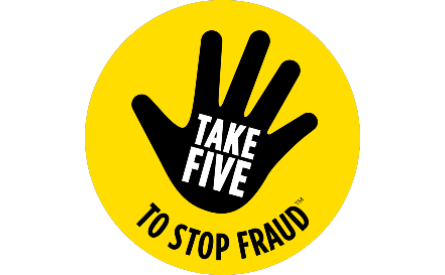- Never reveal the details of PINs, passwords or digital banking codes over the phone in any circumstances, even if the caller claims to be from the bank or a company you trust.
- You will never be asked to scan a QR code, neither will we need to text a QR code to your mobile phone.
- If the caller asks you to enter a series of numbers into your handset, stop. This is a scam. They want you to set up call forwarding to prevent genuine callers contacting you.
- Remember, we’ll never ask you to key or authorise test payments, reverse and cancel transactions or download screen-sharing software.
- Third party companies and organisations who contact you should never need or have access to your Bankline or online banking services.
- Never be pressed by a third party to ‘cancel’ payments using your smartcard reader – it’s a scam.
- Pay attention to what the Bankline QR smartcard reader display is showing you. Ask yourself, are you really paying who you think you are?
- Don’t rely on the caller ID number that appears on your phone to verify the call, as this can be faked to look like the caller is calling from a safe or recognised number.
- If you receive a suspicious or unexpected call, verify the caller using an independently checked phone number such as a contact number from our website. Use a different phone, in case the fraudster has kept the line open and they’re waiting to intercept your outbound call. If you don’t have a second phone, try calling someone else you know first to make sure your line is clear.
- Treat all unsolicited calls with suspicion, and never be afraid to end a call, if you have any doubts.
Overlay
What is telephone fraud or ‘vishing’?
- This is contact made by phone, which encourages you to give out PINs, passwords or digital banking codes.
- These calls often involve fraudsters claiming they’re from the bank, the police, or another official organisation or company that you trust.
- You may get a ‘warm up’ call where no information is discussed. This is to prepare for a second call in which they’re likely to ask for information.
- They may have some information about your organisation already, such as a name, address, or even the name of a genuine member of bank staff, all to make the deception more plausible.
- Calls often seem urgent, to get you to act quickly, giving you minimal time to think about whether the call is fraudulent. Some common examples are:
- ‘There’s a problem with your account that requires urgent action.’
- ‘There’s been some suspicious activity on your accounts; we need you to move your money to another account.’
- ‘There’s malware on your computer.’
- ‘We’re investigating fraud by bank staff.’
- ‘We need to cancel payments.’

Take Five to stop fraud
Take Five is a national campaign that offers straight-forward and impartial advice to help everyone protect themselves from preventable financial fraud. This includes email deception and phone-based scams as well as online fraud – particularly where criminals impersonate trusted organisations.
